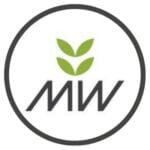Toxic Exposures
‘UnReal’: Boston Startup Debuts First Lab-grown Milk
Brown Foods grows milk-producing cells in bioreactors to synthesize all components of cow’s milk — proteins, fats and carbohydrates. The Whitehead Institute for Biomedical Research claims the product, UnReal Milk, contains all essential proteins, fats and carbohydrates that make up 99% of traditional cow milk.
Listen to this article
By Dave Dickey
Of course, it was just a matter of time.
The laboratory cell-based revolution has already produced chicken, fish, and beef substitutes that, once cooked up and plated, are practically indistinguishable from their live counterparts.
In the U.S, there’s been backlash against the idea that a mother of four could one day fill her shopping cart with meat substitutes made from cell cultures.
Numerous state legislatures are attempting to restrict or ban the sale of lab-cultured meat. Florida has already succeeded. Also Alabama. Nebraska could be next.
And a slew of states are looking to pass new labeling laws that would require front of package language such as “cell-cultured” or “lab-grown.”
Needless to say, the debate over lab-grown meat is contentious. It’s about to get even messier.
Late last month, Brown Foods announced the creation of what it says is “the world’s first test tube of lab-grown milk.”
Yes. Lab-grown milk.
I imagine the company hopes that UnReal Milk might one day become a viable alternative to not only cow’s milk but also plant-based alternatives such as soy, oat, rice and almond.
UnReal Milk’s major selling point is that Massachusetts Institute of Technology’s (MIT) affiliated Whitehead Institute for Biomedical Research claims the product contains all essential proteins, fats and carbohydrates that make up 99% of traditional cow milk.
Soy milk comes closest to real milk’s nutritional values, but even then, it’s a poor second.
UnReal Milk also can be processed into butter, cheese and ice cream.
Brown Foods says the lab-grown milk is a product of mammalian cell culture. It is on a fast track to get the milk to market, looking to bring Unreal Milk to consumers for tasting by late this year, followed by a market pilot in late 2026.

Do you have a news tip? We want to hear from you!
Other lab-cultivated milk companies, such as Perfect Day, use precision fermentation to sell products approved through the U.S. Food and Drug Administration’s (FDA) Generally Recognized as Safe regulations.
Perfect Day genetically modifies a fungi in a sugar solution to produce beta-lactoglobulin, which is further processed and combined with water and fats to create its milk alternative.
Brown Foods grows milk-producing cells in bioreactors to synthesize all components of cow’s milk — proteins, fats and carbohydrates. If MIT is right, UnReal Milk is identical to milk from cows at a molecular level.
Here’s the real bad news for the dairy industry — unlike lab-grown meat that has, to date, been cost-prohibitive to make, Brown Food’s mammalian cell culture process can be scaled up to produce huge volumes of milk for human consumption.
Yes, there will be regulatory hurdles with the FDA and the U.S. Department of Agriculture. Given the current federal political climate, it’s anyone’s guess whether UnReal Milk will be greenlighted anytime soon. Who knows?
I’m sure the dairy industry won’t be taking any chances. I expect it won’t be long until you see a full-scale frontal attack on UnReal Milk from the dairy industry to state and federal lawmakers and, if necessary, the courts.
I’m not fully convinced that there is a market for lab-cultured milk. Especially in this country, where milk consumption has literally tanked over recent years.
It seems to me that UnReal Milk might appeal to a narrow niche market that objects to traditional milk due to the treatment of cows or the carbon footprint associated with the dairy industry. Brown Foods estimates that UnReal Milk uses 90% less water, 95% less land and its carbon footprint is 82% lower than traditional cow’s milk.
That said, if the FDA deems UnReal Milk safe for consumption, glasses all around for those who would like to partake.
Originally published by Investigate Midwest.
David Dickey always wanted to be a journalist. After serving tours in the U.S. Marine Corps and U.S. Navy, Dickey enrolled at Rock Valley Junior College in Rockford, Illinois, where he was first news editor and then editor in chief of the school newspaper, The Valley Forge.


No comments:
Post a Comment